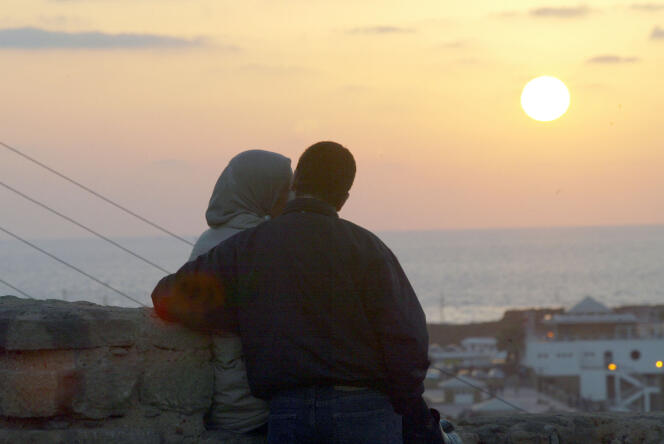The announced reform of the family code in Morocco gives hope to the defenders of women’s rights
A Moroccan couple in Rabat in 2005. Abdelhak Sena / AFP There is hope for the women's rights movement in Morocco. The Sheriff's kingdom is preparing to revise Mudawana, its family code, twenty years after a flagship reform at the start of Mohammed VI's reign aimed at securing equal rights… The King of Morocco is planning to revise Mudawana, its family code, twenty years after a major reform aimed at equal rights for men and women. The King, Mohammed VI, has given the government six months to make the changes. The changes will be introduced in July 2022 on the occasion of the Throne Day. The reform is subject to ideological controversy as the family code is currently ruled under male guardianship. Feminist associations are working to make progress using the royal impulse and a more liberal government after ten years of Islamist party rule. However, the monarchy has to contend with strong conservative forces.

Published : 2 years ago by Joel in
There is hope for the women’s rights movement in Morocco. The Sheriff’s kingdom is preparing to revise Mudawana, its family code, twenty years after a flagship reform at the start of Mohammed VI’s reign aimed at securing equal rights for men and women – until now ruled under male guardianship – the shortcomings of which feminist associations have continued to highlight. The king urged the government to take up the matter. On September 26, he gave him six months to make the proposed changes.
The Mudawana Evolution Project has already been introduced by the Sovereign in July 2022 on the occasion of the Throne Day. “The Family Code was a real leap. From now on, it is no longer enough as such.” he said. As Commander of the Faithful, Muhammad VI also defined the scope of the reform, which could not violate the official Qur’anic texts: “I cannot forbid what God has forbidden, nor can I forbid what the Most High has permitted. »
The equation is promising in the complex consultations that are unfolding in Morocco, led by the Ministry of Justice and the judiciary, as the family code is subject to ideological controversy. On the one hand, feminist associations are working to make real progress, using the royal impulse and a government that is considered more liberal after ten years of Islamist party rule (2011-2021). On the other hand, voices, political and religious, are demanding status quo In the name of protecting the fundamentals of Moroccan identity.
“If the king has expressed his desire to continue the momentum of reforms, it is delusional to think that he can solve everything. Political scientist Mohammad Tozi notes. His choice to make the actors responsible is in itself a recommendation to the magistrates to read the law more enlightenedly, the ulema. [théologiens] to go further in exegesis. But the monarchy has to deal with very strong conservative forces. It is these balances of power and the ingenuity of the actors involved in changing them that determine the ceiling of reform. »
Twenty years ago, Mudavana divided the political class as much as society as a whole. A few months after Mohammed VI’s accession to the throne, the government’s plan for the “integration of women” sparked debate that sometimes turned into controversy. On March 12, 2000, two demonstrations—one in Rabat on International Women’s Day, the other in Casablanca led by Islamists—brought this divide to a head. In the process, the king appointed an “advisory commission responsible for the revision of Mudawana”, whose proposals formed the basis of the final draft adopted by parliament in 2004.
